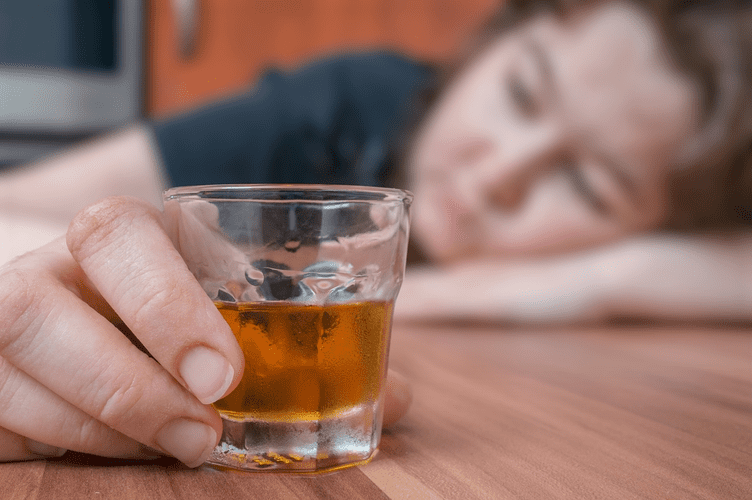Content
When banks refused to lend them money, the brothers maxed out their credit cards and borrowed money from family to put down a deposit on an abandoned two-story property on Strawberry Avenue in Lynn. Schoepplein said he doesn’t have plans to move back to Boston, where he used to live, and where he said he’d be worried about falling back into old habits. “What would happen if you — I don’t want to say over-regulate, but that’s the best way to describe it — a lot of those houses would shut down,” he said. Richard Winant, a member of the Alliance’s board of directors, said there’s a balance to strike between over regulating and under regulating. “They’re coming out of early recovery, and they’re still cloudy.”

We were founded jointly by Vanderburgh House, an operator of sober houses in Massachusetts, and Vanderburgh Communities, an organization supporting sober living and recovery home operators. We’re expanding across the United States as our resources permit! If you would like to add a listing to our sober house directory, please let us know. The Center for Community Recovery Innovations, Inc., issues an annual Request for Proposals to solicit projects for funding.
Supporting Recovery While Working with DCF
Sixty other sober living facilities have applied for certification. Those who do not get certified by September will be unable to accept referrals from state jails, drug courts, or detoxification facilities. Enacting formal regulations would likely also mean requiring all sober houses conform to public building code, which would include putting in things like handicap ramps and sprinkler systems. But for all their importance in an addict’s journey to recovery, sober house operate largely unregulated, in part because they don’t provide any medical services, they’re just residential homes. Our mission is to support persons in recovery from addiction by improving their access to quality recovery residences through standards, support services, placement, education, research and advocacy. This includes the application and interview, after a job offer, and on the job.
Some treatment centers drug test very often, which can be expensive. Ask how often testing is done and how much each test costs so you don’t incur surprise costs. You have a right to privacy.Personally identifiable health information relating to SUD and alcohol treatment needs to be treated more confidentially than other medical information.
About MassHousing
MSHC owns each property and leases it to an unincorporated association comprised of the house’s residents. The lease is signed by an elected “house president” on behalf of the unincorporated association. MOUD, sometimes called medication-assisted treatment or medication for addiction treatment , is the use of the FDA-approved medications to treat OUD. These medications include methadone, buprenorphine, and naltrexone. People take them differently and in different settings, so which medication you take is a decision you should make with your provider.
People at risk of an overdose can get Narcan and training on how to use it atOverdose Education and Naloxone Distribution sites. You can also get Narcan at most pharmacies without a prescription, and the pharmacist can show you how to use it. Programs that provide any type of residential service cannot discharge you to a homeless shelter or the street as part of your treatment plan. Every treatment center should have a grievance procedure, which is a way of making a formal complaint to the provider. Ask the facility if they have a grievance procedure, how to file one, and the timeframe for a resolution. Residential programs and Sober Homes cannot deny you because you are treated with medication for opioid use disorder .
Navigating the Legal and Court System
They serve 30 to 50 students per school and are supported by the state, local school districts, and educational collaboratives. Students receive support for their https://ecosoberhouse.com/ recovery within an academic setting consistent with Massachusetts State Standards. Students with a diagnosed SUD can choose to attend a recovery high school.
- Every college campus has its own policy regarding The Good Samaritan law, even if it’s different than the state Good Samaritan law.
- You are pressured to share medical information or previous substance use during the interview process or on the job.
- If you don’t have MassHealth, there may be a copay depending on your insurance.
- The board further found that the house at 68 Hooper Street has a first floor with two bedrooms and a second floor with five bedrooms, and that each bedroom has a locking door.
- 148, § 26H, to install an automatic sprinkler system at 68 Hooper Street.
Sober Homes, also known as alcohol- and drug-free housing, can offer people in recovery a safe and positive environment where they pay rent. These group living homes ensure that people in recovery are not alone, and they can share their success and support with others reaching for the same goal. No matter what type of treatment you engage in or how you define recovery, everyone has a right to access substance use disorder treatment and support services free of discrimination. Stigma, racism, other historic injustices, and systems of oppression can make it difficult for people in recovery across identities to experience the quality of treatment and services they have a right to. MSHC’s properties are run under the Oxford House sober housing model, which has three governing principles. First, an Oxford House must be democratically operated, with officers elected from among the residents.
People with opioid use disorder must be able to get accurate and unbiased information about the effectiveness of different treatment pathways. Accurate information allows you to choose what’s right for you, which might change over time – and that’s okay. Your massachusetts association of sober housing route to recovery might be made up of different services and supports from clinical and non-clinical pathways. The majority of our houses are run by independent Owner/Operators who collaborate with Vanderburgh House to provide sober living in their own areas.